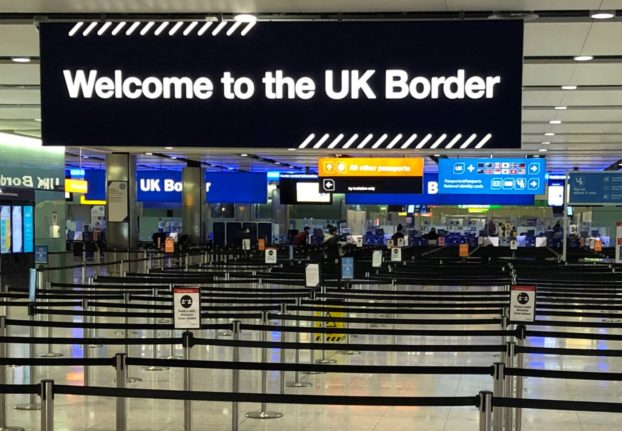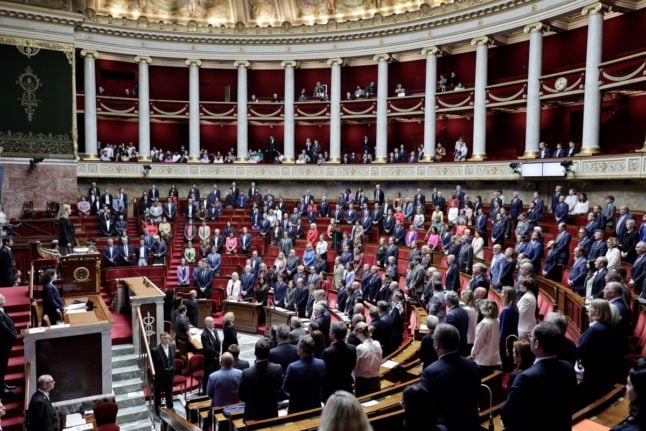A child born in France to British parents who are living over here will be considered British and will therefore – initially at least – need a British passport in order to travel overseas.
This is because the process to become French, even for those born on French soil, is not a given. Unlike countries, such as the USA which confers citizenship automatically to anyone born on US soil – with all the benefits and issues that may have in later life (yes, we’re looking at you, FATCA), the process is rather more complicated for children born in France to foreign parents.
READ ALSO Guide: How to request French nationality for your child
But the child will be considered British from birth, which means that a British passport will be required for any trips outside of the country.
Registration
First of all, you can register your France-born child’s birth with British authorities, so that it is recorded in the UK with the General Register Office or at the National Records Office of Scotland.
Parents do not have to do this, but if you choose to, you can then order a consular birth registration certificate for a fee.
Passport
However, Britons born in France can still apply for a British passport, even if their birth was not originally registered with UK authorities.
Assuming the first application for a passport is made while the applicant is still a child, you can find the online process here, on the British Government website.
If you’re applying for a passport for your child, you will need to supply:
- A suitable digital photograph of the child/baby – examples of acceptable photographs are displayed here … good luck!
- Original or certified copies of any necessary supporting documents, plus translations as necessary;
- And payment, using a credit or debit card. The fee for a standard passport is £101 for an adult, and £65.50 for a child, plus a £19.86 courier fee. NB: you can also apply by post, but it is cheaper online.
For reference, supporting documents will include:
- The child’s birth certificate – plus a translation, unless you previously registered with the consulate / UK authorities;
- One of your parents’ birth certificates / naturalisation / registration certificates. If this is your father, his marriage certificate to your mother
To get copies of birth, marriage or death certificates issued in England or Wales, go to www.gov.uk/bmdcertificates
For documents issued in Northern Ireland, go to www.nidirect.gov.uk and for Scotland go to www.nrscotland.gov.uk
You will need to pay a fee for the certificates, and normally these can only be sent by mail so allow time for delivery.
On a first application, you will also need to have a countersignatory confirm the applicant’s identity.
They need to confirm that, to the best of their knowledge, the details you have given in your application are correct, and they must also confirm that the photo is of the applicant – it’s possible to do this this online, you provide their details and they will receive an email from the passport office.
For child applications (aged under 16) it is also to confirm that they have known, for at least 2 years, the adult who signed the declaration in section 9 of the application form. They must also confirm that the person has parental responsibility for the child and confirm the child’s photo is a true likeness.
The countersignatory must:
- have known you personally for at least two years – they can be a friend, neighbour or colleague but not a relation by birth or marriage
- be a ‘professional person’ or a person of ‘good standing in their community’ – you can find a list of the accepted professions here (journalists and MPs are decreed to be sufficiently respectable professions – go figure)
- live in the UK;
- hold a current British or Irish passport.
Once you have made the application, you will receive the passport through the mail. Waiting times are usually around the same as renewing an adult UK passport.



 Please whitelist us to continue reading.
Please whitelist us to continue reading.
Member comments